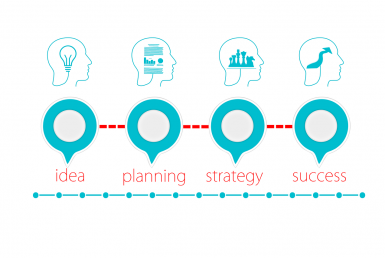Insurance Professionals – Code of Ethics?

Insurance Professionals – Code of Ethics – Most of us were brought up with the Golden Rule Notion.
You treat those how you want to be treated. This statement seems universal enough.
It is adopted and practice within most major religions, and taught in many schools and
schools of thought. Even with all this influence, it is still not enough.
Some form of the ethics code needs to be instilled into the professional practice of insurance.
The only problem is, does one exist for the entire industry,
or are they separated for review and handed separately?
Insurance Professionals – A Universal Code?
There are many professional societies in the insurance industry. Some of these include the
American Society of Chartered Life Underwriters or CLU for abbreviation.
This insurance program does have an adopted code of ethics. These codes of ethics are specialized
or geared towards the life insurance market specifically.
The only problem with this overview is, that even though the specialty or individualize insurance
market may have a code of ethics. For example, CPCU or the Society of Chartered
Property and Casualty Underwriters, the industry as a whole, lacks a standard code of ethics.
So, even though these two groups have their own code of ethics, the industry lacks one as a “whole”.
This is where the dilemma of ethics can take form.
Overcompensation of Coverage?
How they have compensated for this lack of universal presence is through individual organizations.
These organizations have developed ethical practices for their members to uphold.
This sets some bar of professionalism and ethical standards within the industry and
keeps members responsible for their actions.
The difference in Organization Affiliation?
There might be a lot in common among the industry standards,
but you can also find many variations to these patterns as well.
This holds true to many, but below, for example, these variations can take shape.
This process is through:
- Categorizing
- Labeling
- Characteristics of code provisions.
Industry Provisions?
Of course, these provisions depend on the regulations,
requirements and goals for the outcome of the code
Professional Society’s Code of Ethics Now, that you have an idea of what
a professional society’s make up is, let’s look at what principals are
included in the practice. This will provide an overview of what functions and
duties are presented towards the clients.
Lists Insurance Professional Principles?
Some of the insurance professional principles include:
- The performance of duties and functions from the member towards the client and principals.
- To place the interest of the client above everything else, including their own personal interest.
- Maintaining the confidentiality of a client-professional relationship.
- Using the method of due diligence to determine the clients’ needs

Insurance Professionals – Industry Standards
Throughout this piece, an identification of a standard ethical approach was observed
and reviewed to the entire industry of insurance. Even though a
the universal approach is not applied, individual groups or society’s stand to enhance
this behavior approach to values in the industry.
The Insurance Progression?
This is an important reminder to the progression of insurance,
both commercial and personal. This is because ethical deterioration can also open other
doors of exposure. Just think of all the many ways ethics can be undermined,
there are so many to list, we would need an entire 60 more pages.
This would only be in theory only reaching the tip of the iceberg.
Technology Advancement in Industry?
This is because the advent of technology has opened a gateway to all types of online
behaviors from insurance professionals. Cybersecurity now plays a
role in this insurance equation and has its own class division of ethics.
This comes from the access point of entries to online insurance portals,
to the transmission of insurance of policies. In closing, no matter if you are looking at
cybersecurity threats or a more detailed history lesson on commercial insurance,
ethics should always be a priority. It is the basis for core growth and economic productivity.
Industry Overview and Trends?
As a business owner of a small or large insurance agency,
technology and professional etiquettes are one
the area to examine to ensure that the profession is not
tarnished or undermined through system manipulation.
As you have read above, technology has advanced the industry,
providing more efficiency and accuracy in the profession.
However, technology also comes as a means of finding
loopholes, such as shortcuts, that can ultimately hinder
the success of your business operation.
Insurance Professional Advancement
With the advancement of online reviews and other review methods, a small insurance agency,
for example, can face an online backlash. This online backlash
can snowball into a larger dilemma for many small businesses, since
reputation and industry professionals is an overriding
the decision in buying insurance for consumers at the present time.

Gatekeeping your Industry: Ethics and Professionalism
Gatekeeping can be one method in reducing or minimizing online backlash
as a result of unethical behavior from insurance employees.
For example, an outside third party can oversee all business transactions,
and ensure that a checklist is being followed and completed by all employees in the agency.
This can help protect the overall operation, no matter how big or small,
from unforeseen problems that may arise either online or through an outside agency.
Insurance Professionals -Agency Business Checklist
A business checklist can be similar to that of an audit, making sure each action and item is accounted for.
This may not completely eradicate the issue, but it will help position the agency for maintaining
a high level of ethics and professionalism. This can in turn help to
increase agency profits, through the process of word of mouth.
As negative reviews online can damage an insurance agency for example,
so can a positive review do the opposite effect. Keep this in mind as you start
your gatekeeping tactics. Help all departments within your agency to
become more engaged in this process. A collective agency is better positioned
for positive growth and furthering your bottom line.
This checklist process will help weed out any problem employees,
that are not living up to the agency standards and profession of insurance.



